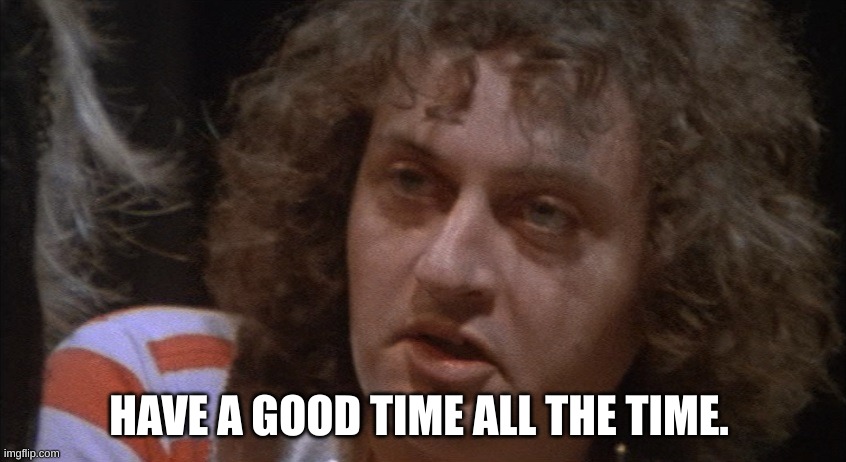High adventure in space and the firing of zap guns.No, when Humanism is a part of a episode, the majority of the time it's general Humanism, with only a few rare instances of it being secular.
From TNG's "Who Watches the Watchers":
PICARD: Horrifying… Dr. Barron, your report describes how rational these people are. Millennia ago, they abandoned their belief in the supernatural. Now you are asking me to sabotage that achievement, to send them back into the dark ages of superstition and ignorance and fear? No!
Even something like the Bajoran religion is not really a religion as we understand it. It is NOT like Christianity or Islam where it's based on faith on a spiritual force that can't be understood through empirical means. There's physical evidence for the Prophets' existence (i.e., the wormhole, the orbs, etc.), and there's rational explanations for the phenomena instead of being based in superstition.
It is hardwired into
Star Trek the rejection of deities and any supernatural dogma that's created around false deities (e.g., "What does God need with a starship?"). There's literally multiple episodes of TOS where the Enterprise shows up at a planet to find people's lives being controlled by a computer that's being worshipped or some other thing that has become the basis for irrational behavior. And, ultimately, Kirk decides that human reason and rationality cannot allow those situations to continue.
The underlying elements of Trek's ethos....
1. There is strength in unity and diversity. The Federation moves outward and incorporates those who want to be part of it into the fold. They all bring their talents and perspectives to the table, and the Federation is stronger because of it.
2. Rational discussions of problems leads to solutions, but any decision should always be tempered with empathy for those involved. That's the essence of how Kirk makes decisions in TOS. He uses the cold logic of Spock's views and modifies it with McCoy's compassion.
3. Unlike a series such as
The Wire (which sees governments and large institutions, whether it be police departments, unions, schools, or the media, as being ineffective and ultimately failing under the corruption they breed),
Trek believes in the power of governments and large institutions being able to affect change on a galactic scale.
4. I had a fellow liberal/progressive friend argue with me that
Star Trek is a depiction of a utopia, but it's a militarist utopia. Starfleet's central role within the Federation gives it a HUGE amount of influence in guiding Federation policy. Starfleet's role in exploration is a benign one, but what they find out there also has a tendency to have massive implications for the Federation when it comes to threats and the affect on Federation citizens.
5. People are not defined by their color, species, gender, or where they come from. They're defined by their experiences and the relationships they build. Who Data is goes beyond just being an android. It's a collection of experiences and memories that make him who he is, and that's complimented by the feelings of those that care about him. The families we have are not just defined by genetics. They're also about the people who we come to love along the way.


 )
)